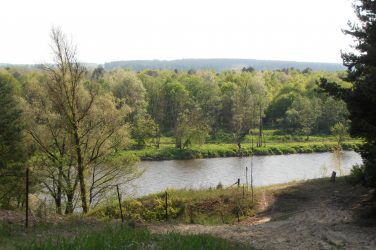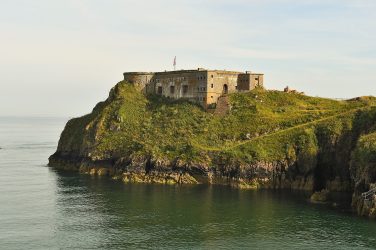The Western Balkans (WB), once Croatia joined the European Union (EU) in 2013, is mainly referred to Albania, Bosnia and Herzegovina, Kosovo, North Macedonia, Montenegro, and Serbia. From a historical and geopolitical point of view the Western Balkans has been considered a “hot spot”: plural actors such as the EU, Russia, Turkey and in the last decade China have aimed to forward their agendas and increase their influence
After the fall of the Berlin Wall on 9th of November 1989, the WB region entered a decade of hard conflicts, whose socio-economic and political consequences are present also today. It lasted until the moment EU confirmed the European perspective of the WB countries with the Stabilisation and Association Process (SAP) of 1999 and with the Thessaloniki Council in 2003. Which created a positive loop of reforms and steps in the EU accession road, generating concrete benefits for the people in terms of visa liberalisation, investments and in most of the cases an increased level of democracy. Practical profits for the people which were translated in an enthusiasm for the EU and in some instances incentivized political actors to adopt a pro-EU stance even in those minor cases where they did not really feel it. In other words, the engine pushing toward the EU road, even though with different speed in different WB countries, were the people and especially the youth. A study of Friedrich-Ebert-Stiftung (FES) in 2018-2019 has found that the WB youth are impressively pro-European, and the two strongest youth pro-EU countries are Albania with 95% and North Macedonia with 81% . (Source 1 & 2)
“Every crisis is an excuse for the assertation of an alternative to the EU-Atlantic alliance”
Even though the EU is the most influential actor in the region, mostly due to the interest of the people, it is not the only actor and “every crisis is an excuse for the assertation of an alternative to the EU-Atlantic alliance”. A crisis, such Covid-19, can create the conditions for the geopolitical actors to move forward their agendas and position themselves differently. Therefore, an analyse of how the Covid-19 crisis has played in the relations of the WB countries with the EU and other actors such as China, Russia and Turkey seemed opportune.

At the beginning of March, the epicentre of Covid-19 outbreak changed from China to Europe and found everyone unprepared, even more the WB countries due to the lack of high-level healthcare system. While EU was “figuring out” what approach to take, China, Russia, and Turkey were very active in the region by sending medical help such as face masks, handsanitazers, medical equipment and in some cases medical staff. It comes as no surprise that this help did only target certain countries. Specifically, those with which these actors have better relations and could be certain that their act of selflessness would be publicised. China, for example, based on its good relations in the last decade, send medical equipment and medical staff to Serbia which was highly appreciated by its president. Needless to say that, Kosovo did not receive any help given the fact that China does not have any diplomatic relations with Kosovo.
EU’s response to Covid-19 and influence in the Western Balkans
European Union’s early response to Covid-19 was fragmented. Some member states put the whole country in lock down and some other were being reactive: wait and see how the things evolve. Even though there was a call for a pan-European response, in the early stages at least, member states and the regions were the one deciding what type of measures it will be adequate and when it will be putted in place. Things changed fast as it is of habit once the EU “makes its mind up”, which is difficult given the large necessary consensus, and an adequate response was put in place to the Covid-19. Once the EU decided what is the best course of action, the plan also included the WB region.
In April 2020, EU mobilised € 410 million as support for the immediate needs. One part of the fund was immediately sent and implemented in cooperation with the United Nations agencies aiming to address the most pressing medical emergencies. A second part would be a short to medium term assistance to support the social and economic recovery of the region. In addition, after the EU – Western Balkans Summit, which was supposed to be held in Zagreb but due to the covid-19 was held virtually on the 6th of May, the EU pledged € 3.3 billion to address the needs in the health sector, mitigate the socio-economic impact of the pandemic and inject liquidity for small and medium sized companies.
The differences between the help send by the EU and the other actors in the WB region is evident. EU approached the WB region as one, making one plan and sending the help based on well-established criteria and not pinpointing those countries that can give better publicity. The amount of help was made transparent at the EU level but also that national level, it was not them same for the other actors. One of most significant critics for the Chinese help was that it was not transparent to the public. The EU differs also on the timeline and scope of the help: instead of some basic medical equipment, so loudly publicised, the EU planned to deal with the challenges of the Covid-19 in the short, medium and long-term and focused on resolving complications in the whole socio-economic level.
Western Balkans’ reaction to external Covid-19 help
Few politicians in the WB countries prefer the help from other actors and not the EU and the main reason is because they “do not ask questions and do not impose conditionality” for the help provided. On a quest for the truth, which should be the mission of each public writing, one should ask who benefits when this kind of help is received, and questions are not asked. Is it the people or the politicians? It is largely known that politicians need to make their decisions public because they risk taking decisions that helps to keep them in power, but it is the people who will have to pay the consequences in the long-term. In the case of Chinese help to Serbia none knew how much it was, how it will have to be paid back and on what terms, and even the public authorities refused to disclose when asked about i (Source 1 & 2). These Chinese financings, even though it may seem without any strings attached, may not come as free as some think and the case of debt-trap and corruption in Malaysia proves once again the need for transparency.
Even though the people of the WB countries are not always satisfied with the EU actions, the general opinion seem to support an EU path.
According to academics, think tanks and journalists the inclination of some political actors in the WB countries toward China or other geopolitical actors is not a reflection of the general will of the people rather a foreign diplomatic play or a way to keep them in power. To make this believable they are also trying to influence the people.
Yet based on the interviews we had with a dozen of young people from the WB countries, who know in-depth the EU and other actors’ response for the Covid-19, the enthusiasm of the people about the EU path is the same as before the crisis. In an exclusive interview for this article a PhD candidate from Albania said that “When it comes to the future of Albania, I do not even want to think of another possible path. We, the youth of Albania, are very much looking forward to the day that we are part of the big EU family. That is the only option we think, believe and dream about” (Interview with an Albanian Ph.D. candidate at the University of Rome “La Sapienza”). In general, it can be affirmed that the will of the people and especially the youth from the WB to move forward in the EU integration path has not changed during the Covid-19 crisis, but the crisis is not over yet and a lot is still at stake. The EU should take very careful steps to show to the people of the WB region that their future is in European family.
Cover image: CDC from Pexels






Show Comments
Comments are closed.